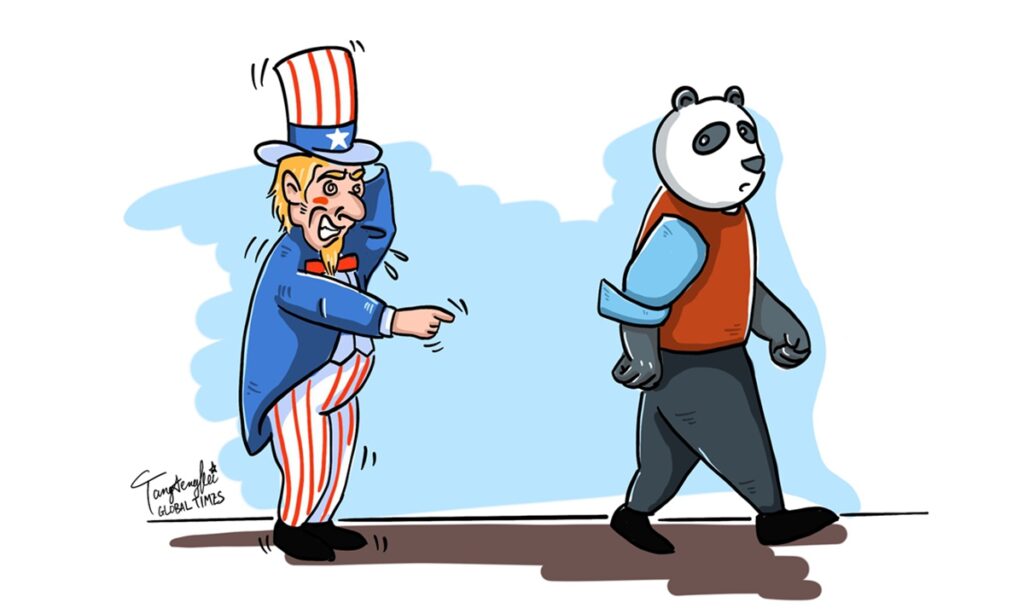China-US Illustration: Tang Tengfei/GT
By Wang Wenwen
In a recent column in the US magazine Foreign Policy, Professor Stephen Walt at Harvard University asserted that America’s history of luck is running out. The article is a rare reflection of the US’ problems that we have seen since the outbreak of the COVID-19 pandemic. For instance, it noted “the deliberately manufactured polarization and the resulting gridlock” and “the fetishizing of ‘liberty'” that the Americans pride themselves on but cost American lives in the middle of the COVID-19 pandemic.
The article also recalled how the US gained its international status in history with its “luck.” Indeed, from the US War of Independence to the Cold War, luck stood by the side of the US. Nonetheless, American exceptionalism to a large degree should be attributed to its exceptional luck, which breeds the US characteristics of being bellicose, arrogant and addicted to meddling in the affairs of other countries.
Like many other US thinkers, Walt believes China, a far more formidable rival than the Soviet Union ever was, is among the reasons why the luck of the US might be running out. This is a typical rhetoric among the US elites. Walt admitted that “having no serious enemies nearby” is a considerable benefit for US security. As the US attaches the utmost importance to its own security, it imagines China as an ideological rival despite China posing no actual threat to the US. As the global hegemon, the US is the thirstiest for the sense of security and its guard against other countries has always been aggressive.
China’s characteristics, including the socialist path it takes and the one-party rule it adopts, fit China’s actual conditions no matter how the US feels about them. China does not have the “luck” the US has ever enjoyed.
The forceful imperialist invasions by the UK in the mid-19th century and by Japan in the 1930s and 1940s saw China’s territory being ceded and people having lived in disgrace and poverty. The US troops were also among the “Eight-Nation Alliance” that looted and pillaged Beijing and other Chinese cities at the very beginning of the 20th century.
In the 240-year-plus history of the US, it has never experienced such miseries. It does not respect other countries’ right to choose an independent developing path in this new era.
China is only safeguarding its right to rise peacefully and ensures that its economic development is not jeopardized and suppressed. In the eyes of the US, China has the potential to challenge US hegemony, and this is enough for China to fit in the US definition of a foe.
The luck the US has been blessed with made the US a rich country, which paved the way for the US to become an important contributor to the world.
The US has played an indispensable role in shaping world trade and investment and its economy has driven global entrepreneurship and prosperity. It helped establish the postwar international liberal order, though some scholars believe this order has never been perfectly liberal. Some hail the US as “a beacon of freedom,” but the label looks only sarcastic throughout this year that has been marked by the ravaging epidemic in the US. During the year of pandemic, the US’ arrogance and bossiness is clear to all.
The US role does not match its status as a global superpower which is supposed to act in a responsible and graceful manner. Some believe the US is an empire going downhill. Is it really the case? Global Times


